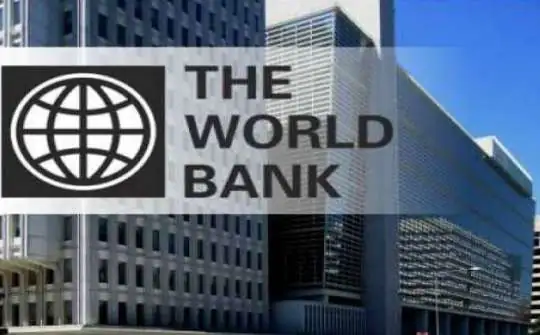Our Terms & Conditions | Our Privacy Policy
Sub-Saharan Africa’s Economy Rebounds While Poverty Persists, World Bank Reports

Sub-Saharan Africa’s economy is recovering, with growth projected to reach 3.5% in 2025 and accelerate to 4.3% by 2026-2027, according to the World Bank’s latest Africa’s Pulse report.
While stabilizing inflation and renewed private investment are driving this rebound, the region continues to face significant challenges in creating jobs and reducing poverty.
The report highlights improved economic conditions, with median inflation dropping sharply from 7.1% in 2023 to 4.5% this year, relieving pressure on household budgets and making the region more attractive to investors. However, per capita income remains depressed still 2% below 2015 levels—indicating that growth has yet to translate into broad-based prosperity.
“Economic recovery alone won’t solve Africa’s jobs crisis or close the gap between people’s aspirations and reality,” said Andrew Dabalen, World Bank Chief Economist for Africa. He emphasized that governance reforms to enhance transparency, accountability, and competition are essential to attract private investment and generate sustainable employment.
The analysis reveals stark disparities across the region. Resource-dependent and conflict-affected economies continue to underperform compared to more diversified nations. Youth underemployment remains a pressing concern, with formal job creation lagging behind the needs of Africa’s rapidly expanding workforce.
The World Bank identifies the African Continental Free Trade Area (AfCFTA) as a pivotal opportunity to spur regional trade, diversify economies, and create jobs. However, realizing this potential requires governments to improve public spending efficiency, strengthen essential services, and foster a business-friendly environment.
With development aid declining and debt burdens elevated, the report urges African policymakers to prioritize high-impact investments in health, education, and infrastructure critical areas for rebuilding public trust and unlocking long-term growth. While the economic outlook has brightened, the World Bank cautions that without deeper reforms, the region risks leaving millions behind despite macroeconomic improvements.
The findings underscore a sobering reality: even as growth returns, Sub-Saharan Africa must address structural weaknesses to ensure its recovery benefits the poor and creates opportunities for its youth. The path forward hinges on whether governments can translate stabilizing indicators into tangible gains for their citizens.
Send your news stories to newsghana101@gmail.com
Follow News Ghana on Google News
[ad_1]
Images are for reference only.Images and contents gathered automatic from google or 3rd party sources.All rights on the images and contents are with their legal original owners.
[ad_2]


Comments are closed.